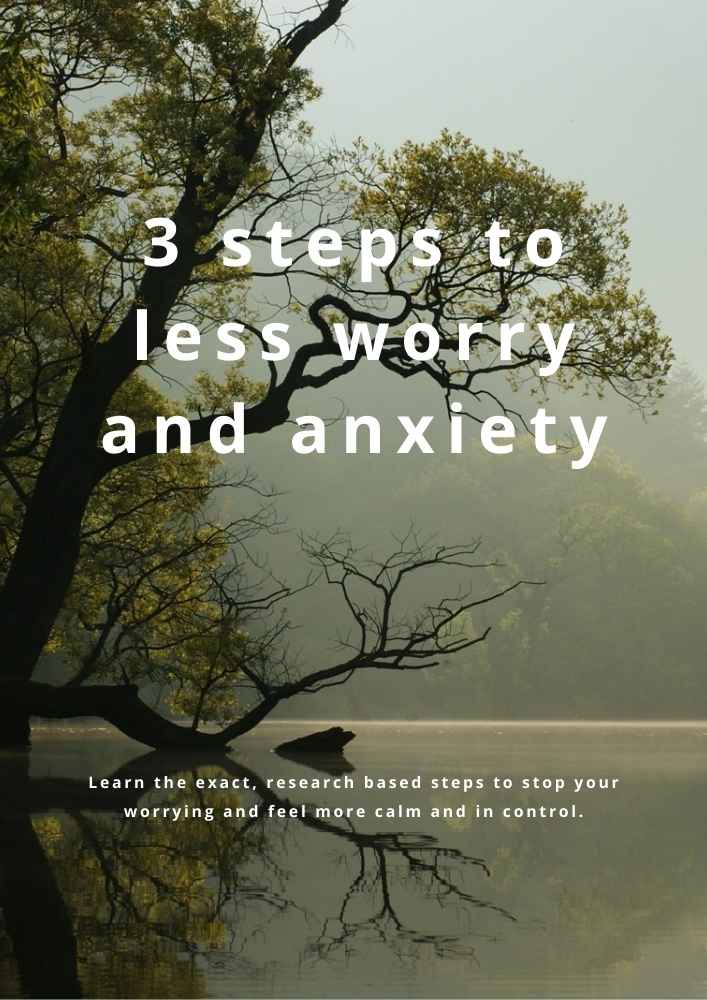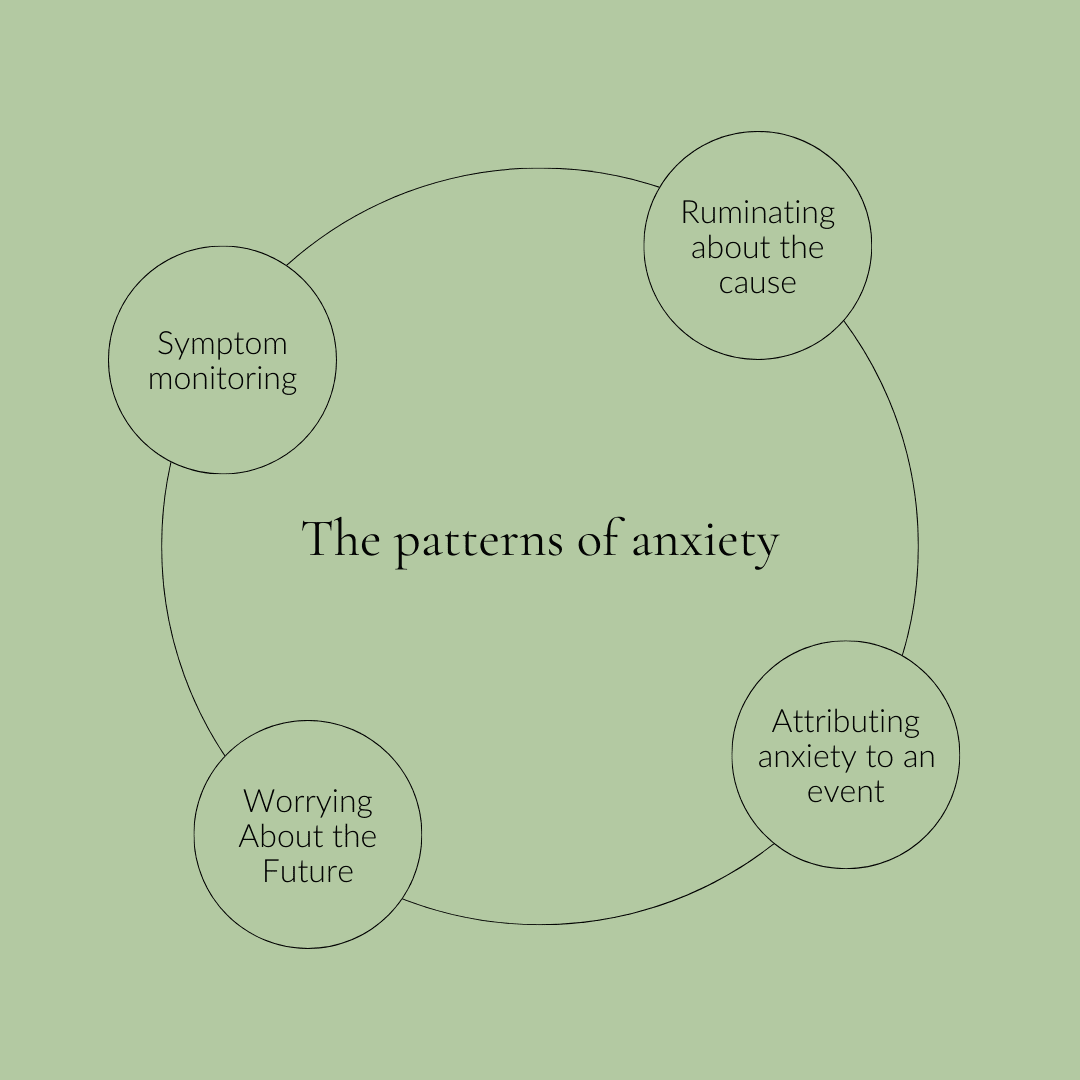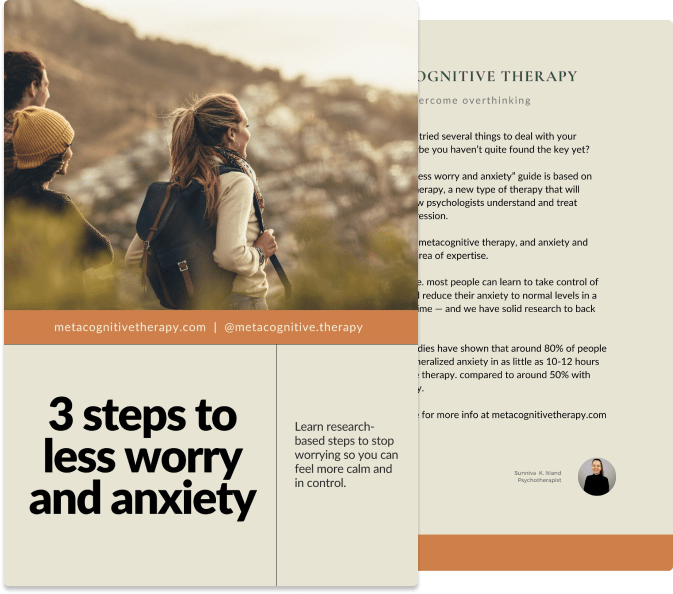Do you wake up feeling anxious in the morning? Here’s what to do

Download our best tips on reducing anxiety and worrying
Learn three powerful metacognitive therapy steps to stop the worry cycle, reduce anxiety, and feel calmer in everyday life.


If you regularly wake up with anxiety in the morning for no clear reason, you're not alone. It’s an overwhelming feeling to wake up with unease and a racing heart, and to not know why. But morning anxiety is actually a common experience, and you don't need to understand what's causing it to feel better. The key is changing how you respond to it.
What is morning anxiety?
Many people wake up feeling anxious, and it can manifest in various ways. For some, this is a recurring problem. Even when there’s nothing to be anxious about, you might wake up feeling:
- Dread or unease
- Physical anxiety symptoms like a pit in your stomach or a racing heart
- Worries and negative thoughts
- A sense of impending doom
It can feel hopeless waking up with anxiety because if nothing triggered it, how can you address it?
Understanding the patterns of anxiety
While we may never know the exact cause of your morning anxiety, there are some common patterns among people who experience recurring anxiety in the morning:
- Symptom monitoring: Many people focus inward, constantly checking on their symptoms and if they’re getting better/worse.
- Ruminating about the cause: Why do you feel like this, and how can you fix it? Is it because you didn’t sleep well? Had too much caffeine? Stress at work? Are relationship issues causing you to wake up anxious? We're taught to believe if we figure out why something is happening, we can make it go away. But that's not necessarily the case.
- Worrying About the Future: Wondering whether the anxiety will continue, worsen, or happen again just contributes to the cycle of anxiety.
- Attributing anxiety to a specific event: Believing that feeling anxious means something is wrong or will go wrong, leading to more pre-emptive worry and planning.

But constantly focusing on negative and worrisome thoughts will just maintain the feelings of anxiety without solving anything. Metacognitive Therapy (MCT) can help you interrupt the negative thinking patterns that may be keeping your anxiety going. You can read more about how MCT works here.

Download our best tips on reducing anxiety and worrying
Learn three powerful metacognitive therapy steps to stop the worry cycle, reduce anxiety, and feel calmer in everyday life.
Solutions you might be trying now
Many people dealing with this try strategies to cope with morning anxiety, like staying in bed longer so they can avoid as much of their morning as possible. They might try adding calming rituals to their bedtime routine, avoiding screens before bed, and cutting out caffeine. A lot of effort can be spent on things like positive affirmations and regimented breathing exercises in the morning.
But these don’t address the core problem: spending too much time and attention on their morning anxiety. It sounds counter-intuitive, but trying too hard to solve it, can actually keep the anxiety going, and even make it worse. Because we can’t stop engaging with something if we’re also actively trying to solve it.
So what actually works?
If you've tried all of the things to combat morning anxiety with no success, why not try a different approach?
- Spend Less Time Ruminating: Interrupt the cycle of rumination. Instead of trying to figure out why you feel anxious or how to avoid it, let it be.
- Stop symptom-monitoring: Drop the check-in routine and stop looking for changes in your symptoms throughout the morning.
- Get On with Your Day: Start your day as you normally would. Have a shower, get dressed, enjoy your coffee. Don't check in with your anxiety first thing in the morning. If you must check in, wait until your day is already underway.
- Stick to Your Routine: Try not to alter your routine to avoid anxiety. If you’re an early riser, don’t sleep in to avoid anxious feelings. If you like coffee, don’t cut it out completely out of fear of anxiety returning.
- Let go of strategies that don’t work: Affirmations and breathing exercises won’t stop your anxiety, and while they can provide temporary relief to some, they may also bring more attention and fixation to your morning anxiousness. The mind will regulate itself if you let it.
See what happens to your anxiety levels if you leave it alone for a couple of weeks. We generally see that morning anxiety becomes less of a daily problem when people spend less time and mental energy on it. Even if the anxiety doesn’t go away, it’s still a win to spend less effort managing strategies that don’t move the needle.
Now you can redirect some of that to other areas of your life that will help you get out of your head, and into the world. It can feel easier said than done, so if you're looking for a deeper dive on how to break the cycle of anxiety using MCT, check out this article on excessive worrying.



